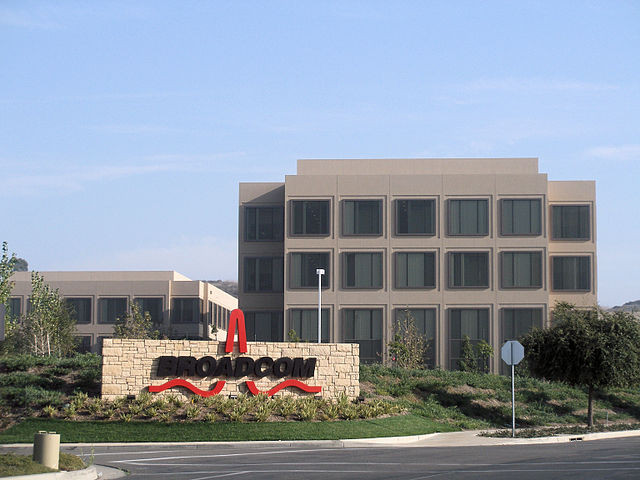Broadcom Inc. achieved a historic milestone on Friday, surpassing a $1 trillion market capitalization for the first time following a robust earnings report that underscored its dominance in the artificial intelligence (AI) chip market. Shares of the semiconductor giant soared more than 21%, marking its largest single-day gain since March 2020.
The rally came on the heels of Broadcom's fourth-quarter results, which showcased significant gains in AI-related revenue. The company reported a 51% year-over-year increase in total revenue to $14.05 billion for the quarter ending November 3. While this narrowly missed analysts' expectations of $14.09 billion, the standout figure was a 220% annual growth in AI revenue, which reached $12.2 billion for the fiscal year.
"This quarter highlights the growing role of AI in driving the semiconductor market, and Broadcom is well-positioned to lead this space," CEO Hock Tan said during a post-earnings conference call. Tan revealed that Broadcom had secured two major hyperscaler customers-key operators of large-scale data centers-and was developing custom AI chips for these clients. The company forecasts the addressable market for its AI components to reach $90 billion by fiscal 2027.
The strong results propelled Broadcom's stock price to $218.29 at the market's open, reflecting the optimism surrounding its AI chip business. Bank of America analysts reiterated their "buy" rating on the stock, citing its "surging AI opportunity." They noted that Broadcom is currently a dominant player in custom chips for internal workloads but warned of competition from Nvidia, which holds a strong position in merchant silicon and enterprise customers.
Broadcom's semiconductor division, which includes its AI chips, posted a 12% increase in revenue to $8.23 billion. Meanwhile, its software segment saw explosive growth, with revenue climbing nearly 200% to $5.82 billion. The latter was bolstered by Broadcom's $69 billion acquisition of VMware Inc., which has expanded its portfolio into mainframe computing, cybersecurity, and data center optimization.
The company's earnings per share came in at $1.42, excluding some items, slightly above analysts' estimates of $1.39. Looking ahead, Broadcom projects $14.6 billion in total sales for the fiscal first quarter, driven by a 65% anticipated growth in AI revenue. This forecast aligns with the company's strategy to capitalize on the burgeoning demand for AI technologies, despite a projected decline in non-AI chip sales.
Analysts at Morgan Stanley expressed enthusiasm for Broadcom's long-term prospects in the AI sector, calling the company "one of the most compelling ways to play AI semiconductors over the next two to three years." The firm emphasized that Broadcom's custom AI chips for data centers provide a competitive edge in a rapidly growing market.
Broadcom's rise parallels the trajectory of Nvidia, another major player in the AI chip industry. Both companies have benefited from the global surge in AI spending, as enterprises increasingly adopt AI-driven technologies for applications ranging from machine learning to autonomous vehicles. Broadcom's chips are integral to these advancements, powering data centers and networking infrastructure critical to AI systems.
Despite its impressive performance, Broadcom faces challenges. Reports have surfaced that Apple, one of its largest customers, plans to reduce reliance on Broadcom's wireless chips in favor of in-house designs. However, Tan downplayed these concerns, emphasizing Broadcom's continued collaboration with Apple on multiyear roadmaps for various technologies.
Broadcom's growth has also been fueled by its acquisition-driven strategy, a hallmark of Tan's leadership. While no specific deals were announced, Tan confirmed that the company remains open to pursuing further acquisitions to strengthen its position in the tech industry. "That has been a core part of our strategy and business model of this company for the last 10 years," he said.




